East Tehran Water To ‘Run Out In Days’, As Dry Summer Looms

Tehran is set for severe drinking water supply shortages in the coming summer due to low precipitation and evaporation from dams.

Tehran is set for severe drinking water supply shortages in the coming summer due to low precipitation and evaporation from dams.
Mohsen Mousavi Khansari, board member of NGO aimed at raising awareness of Iran’s water and soil issues, made the projection in an interview with Tasnim news agency Wednesday.
Khansari said that the five dams around Tehran, the main sources of drinking water for the metropolitan region, currently have 300 million cubic meters (m3) of water, which is not enough to avert a water shortage in the summer.
Latyan and Lar dams, which supply water to the eastern parts of Tehran province, have a total 20 million m3 of water that will run out in coming days, he said. Water in Amirkabir Dam, in the west of Tehran, is down two thirds from a year ago to 30 million m3, “which is deeply worrying,” Khansari told Tasnim.
“If we add Mamlu and Taleqan Dams to the other dams, there will be a total of 300 million cubic meters of water, and if we consider the rate of evaporation and decrease in precipitation, we will definitely have many problems in the summer to supply drinking water to Tehran,” Khansari concluded.
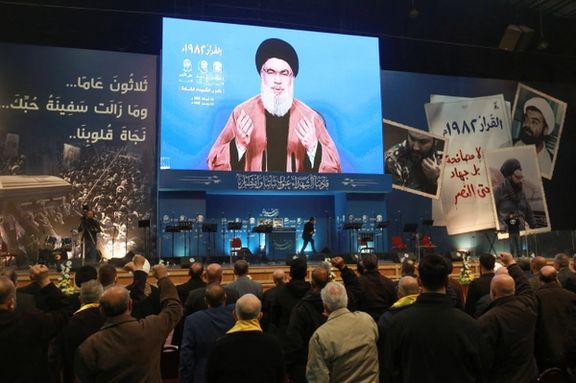
The leader of Iran-backed Hezbollah group said for the first time on Wednesday that it can convert thousands of rockets into precision missiles within Lebanon.
"We have been producing drones in Lebanon for a long time, and whoever wants to buy them, submit an order," Sayyed Hassan Nasrallah said in a televised speech to followers.
He said Hezbollah was able to transform standard rockets into precision missiles with the cooperation of "experts from the Islamic Republic of Iran". Such production had been spurred by arch-foe Israel's increased use of drone technology, he said.
Hezbollah and Israel fought a month-long war in 2006 and have at times in the years since traded fire across Lebanon's southern border.
There was no immediate Israeli response to Nasrallah's statements. While the Israeli military outguns Hezbollah guerrillas, Israel worries that in a future war they could use precision-guided missiles to knock out parts of its national infrastructure like ports or power stations.
Israel has said in the past that it has brought down several Hezbollah drones that had crossed into Israeli air space. Hezbollah says its increased anti-drone capabilities have led to a decline in Israeli drone overflights.
Israel last week published the names of three Lebanese companies that it accused of supplying materials for Hezbollah's precision-guidance missile project, a move designed to generate international economic pressure on the Shi'ite Muslim group.
"Hezbollah are endangering the citizens of Lebanon and the state of Lebanon," Israeli Defense Minister Benny Gantz said in a statement. Israel, he added, would "act resolutely in the face of the Iranian precision project operating from the heart of Lebanon".
Reuters Report
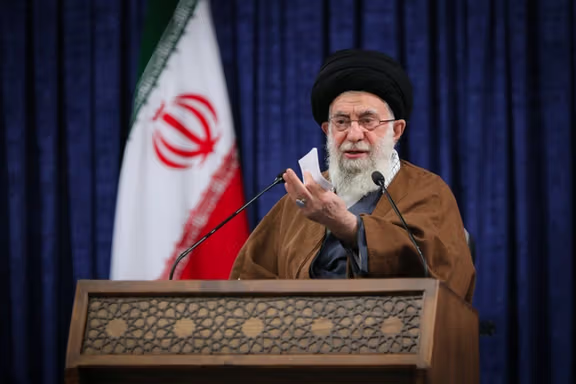
Iran has ranked 170 among 177 countries in economic freedom in the latest annual report by the American think thank the Heritage Foundation.
With an overall score of 42 out of 100, Iran ranked the lowest among 14 Middle Eastern countries included in the survey of the economic freedom report, which is an authoritative comparative source on the subject. The latest report is the 28th annual edition.
Turkey, with a score of 57 is 107th in the world, while Saudi Arabia with 55.5 is 118th. The United Arab Emirates has a high score of 70 and ranks 33rd in the world.
The index measures economic freedom based on 12 quantitative and qualitative factors grouped into four categories: Rule of law, Government size, Regulatory efficiency and Open Markets.
The report says that over the past five years, Iran has experienced just 1.2 percent average annual growth, accompanied by declining economic freedom.
“Sinking under the weight of sharp drops in scores for fiscal health and business freedom, Iran has recorded an 8.1-point overall loss of economic freedom since 2017 and has fallen further in the “Repressed” category,” the report says.
From the 12 indicators in the index, Iran has regressed in 10 of them. Only taxation and government spending “do not weigh heavily on the economy.”
United States sanctions imposed since 2018 have had a serious impact on Iran’s economy, however, many indicators of economic freedom are factors related to domestic governance and the political and economic system of the ruling Islamic Republic.
“Iran’s economy, one of the Middle East’s most advanced before 1979, has been undermined since then by mismanagement, international sanctions, and pervasive graft under a repressive Islamic government dominated by Shiite religious authorities,” the report states, providing examples of peculiarities that undermine the economy.
The corruptive economic role of the Revolutionary Guard, IRGC, is one of the most prominent aspects of the state-managed economy. The ‘rule of law’ general category of factors is significantly impacted by the military’s role and lack of independence for the judiciary.
“Iranians have the legal right to own property and establish private businesses, but powerful institutions such as the Revolutionary Guard limit fair competition and entrepreneurial opportunities. The judicial system is not independent of the supreme leader,” the report summarizes.
In the broad category of ‘regulatory efficiency’ the study shows that, “The bloated state-owned sector and companies controlled by Iranian security forces put private business owners at a disadvantage.”
Iran has regressed in government integrity, fiscal health, business and labor freedom and has historically scored very low (just 5 points out of 100) in investment freedom. This is a particular issue that brings forth a debate about the impact of international sanctions. While it is easy to see that international restrictions can hurt foreign investments, Iran’s political and economic system has generally been inhospitable for all kinds of investments, and this has played a major role in keeping growth at anemic levels for four decades.
The reason for the lack of investment-friendly policies is nepotism, graft, and the military’s large stake in the economy. A more open economic system will lead to more competition, which is incompatible with the vested interests of regime insiders.
The same factors have prevented the country from joining international conventions on financial transparency, anti-money-laundering regulations and a ban on financing terrorism. Since 2017, the regime has refused to adopt legal reforms required by the Financial Action Task Force, an international watchdog. As a result, even if US sanctions are lifted, Iran’s global banking ties will remain severely restricted.
The ruling system, instead of relying more on an open economy and investments, has depended on income from oil exports and the consequent vulnerability to international sanctions.
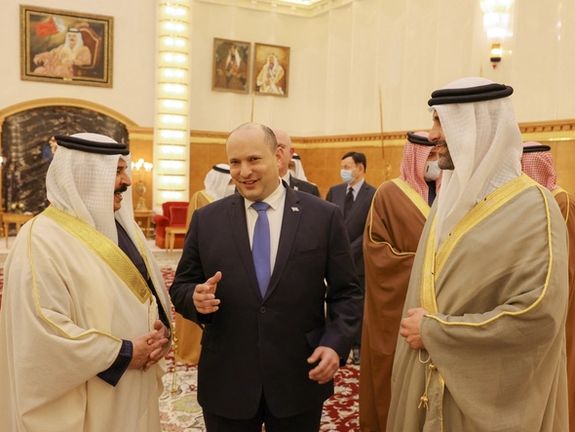
Bahrain's Crown Prince Salman bin Hamad Al-Khalifa has accepted an invitation from Prime Minister Naftali Bennett to visit Israel in "the near future.”
Abdullatif Al-Zayani, the Bahraini foreign minister, announced the plan during the visit to the kingdom Tuesday of Israeli Prime Minister Naftali Bennett, which Al-Zayani said had included discussions of the "Iranian nuclear file and terrorism."
Bennett said he was seeking a “new regional architecture” with Arab Gulf states – referring principally to Bahrain and the United Arab Emirates, who in 2020 normalized relations with Israel – against "enemies who are fomenting chaos and terror."
Bennett portrayed his two-day trip largely as a common stance against Iran and its allies, including Yemen's Ansar Allah, known as the Houthis, whose battle in Yemen against Saudi- and UAE-led forces has spilled over this year into missiles fired at the UAE.
Bahraini opposition activists said Tuesday that at least four people had been arrested in protests against Bennett’s visit in several villages inhabited by Shia, who make up the majority in the country ruled by the Sunni Khalifa family. Bahrain, which crushed protests in 2011 with Saudi help, blames unrest on Tehran.
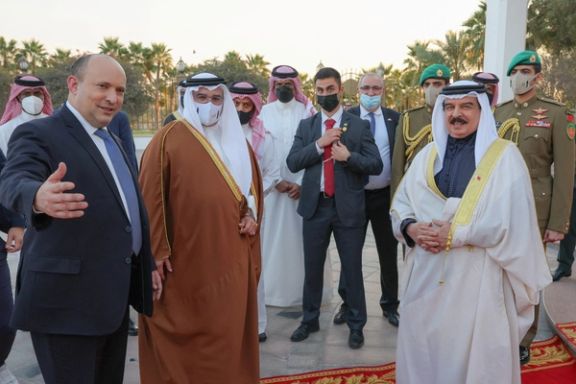
After meeting King Hamad bin Isa Al Khalifa, Bennett stressed the importance of a variety of links that have mushroomed between Israel and some Arab Gulf states since the 2020 ‘normalization.’ "We don't have enough trade, we don't have enough tourism - and that is what this visit is all about," Bennett said. "I'm going to be your ambassador there (in Israel). I want to 'sell Bahrain'.”
The two sides announced a research and development accord and that talks would continue on facilitating investment flows. Bahrain’s has severe fiscal problems with public debt running at around 130 percent of GDP. A bilateral security accord reached in February could give Bahrain access to controversial Israeli technology used to monitor dissidents.
Israel’s Growing Military Role
The proposed visit to Israel by Crown Prince Salman will irk the Palestinians, who see ‘normalization’ as a betrayal of their aspiration for a state. Qatar this month reiterated its support for a Palestinian state as a precondition for ‘normalization,’ the stance agreed in the 2001 Saudi-drafted Arab Peace Initiative.
Bennett’s visit Tuesday to the Bahrain base of the US Navy’s Fifth Fleet highlighted Israel’s growing military role in the Persian Gulf. A US official said Tuesday the navy was considering adding unmanned Israeli boats to its joint regional operations and was also interested in Israeli-made drones.
Officials also said Israel would become the 29th country to post an attaché to the fleet's Manama headquarters. Meeting Fleet commander Vice-Admiral Brad Cooper Tuesday, Bennett said he expected "the cooperation among the region's countries and powerful ally the United States will keep getting closer.”
After the warm relationship between former Israeli premier Benjamin Netanyahu and former US president Donald Trump, Israel’s relationship with the US has been strained by its leaders’ continued opposition to the 2015 Iran nuclear deal, which world powers including the US are trying to revive in talks with Iran in Vienna.
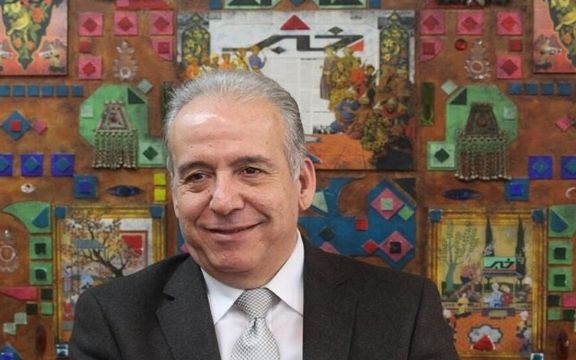
The Chairman of the Iran-China Chamber of Commerce has said that Iran had “imported goods in return for all the oil that we have sold China.”
Majid-Reza Hariri told Mehr news agency in an interview published Monday that China owes no money to Iran for oil imports but does hold Iranian assets.
Hariri argued there had been confusion over $21 billion in Iranian assets that some reports have suggested are in China due to Chinese fears of punitive United States action against anyone buying Iranian oil or interacting with Iran’s financial system.
The business leader said that Iranian money in China consisted of Iran's reserves – cash, bonds, and stocks − that had been transferred to China years earlier in fear of confiscation.
"After 2007 there was a possibility of confiscation of Iran's currency reserves in international banks, particularly European banks, because of legal suits brought against Iran by some European countries or the United States," Hariri explained.
Iran is known to have moved hard currency reserves and bonds to China from banks in Britain, Germany, France and Switzerland to protect them from being confiscated. Washington this week announced it will seize $7 billon of Afghan reserves held in the US.
Hariri said India, like China, had exported goods to Iran as an alternative to dollar payments. These, he pointed out, had included medicine and pharmaceutical ingredients. But other countries, he said, including South Korea − where over $7 billion of Iranian assets are frozen in fear of US action − and Japan had refused payment in kind.
With the administration of President Joe Biden continuing ‘maximum pressure’ sanctions, Washington said in January it would waive any threat of sanctions on South Korea only with “everything” agreed in Vienna on reviving the JCPOA, where talks are reportedly in their final stages..
Billions of dollars of Iranian money is frozen abroad in fear of US sanctions, including in South Korea, Japan, China, Europe, India, and Iraq. The semi-official Iranian Students News Agency (ISNA) estimated in November the total at $50 billion, with $8 billion in South Korea, $3 billion in Japan, and $6 billion in Iraq.
Some countries such as Iraq to which Iran exports electricity and gas but not oil, freeze the money so the volume of frozen money is growing in their banks. Iraq now owes Iran around $7 billion for gas and electricity to Iran.
Other countries such as South Korea, Japan, and India no longer import crude oil from Iran so the assets frozen in their banks date back to before full US oil sanctions went into effect in May 2019, when Washington offered eight countries waivers to import limited quantities of Iranian oil.
China continued buying oil from Iran even after the US imposed full sanctions. The volume was less than 200,000 per day from May 2019 until late 2020, when it increased reaching to more than 500,000 in 2021 and even more by December-January.
The Biden Administration reportedly does not attempt to vigorously enforce the sanctions, as Chinese importers believe the risk of violating the sanctions are relatively low.
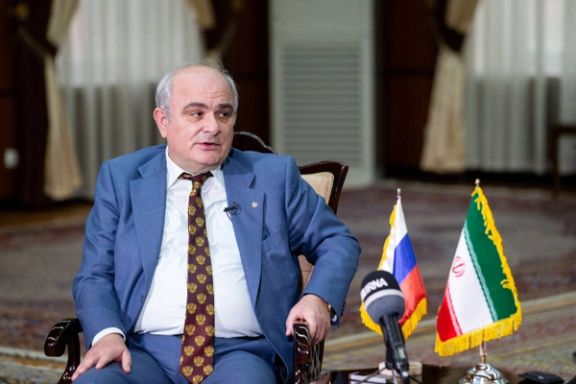
The Iranian public and the government have criticized Russia's ambassador for honoring a 19th-century forerunner, whom they blame for humiliating their country.
The fracas arose after the embassy’s posted February 10 a photo of the Russian ambassador, Levan Dzhagaryan, laying a wreath at the foot of a monument to Alexander Griboyedov inside the embassy compound on Diplomats Day.
The social-media posts expressed outrage because of Griboyedov’s role in the 1828 Torkmanchay Treaty, ending the Russo-Persian War (1826-1828) and under which the Persian Empire ceding areas in the south Caucasus to the Russian Empire. Griboyedov was killed by a mob in Tehran in 1929 after being appointed Russia's ambassador.
In recent months anti-Russian sentiments have been quite high in Iran. Many Iranians interpreted the embassy's recent post as a reminder of Iranians' “humiliation” by Tsarist Russia, as some criticized its coincidence with the Islamic Revolution's anniversary, and others saying it amounted to a threat.
Foreign ministry spokesman Saeed Khatibzadeh said Monday that while the ministry had registered a protest, Tehran and Moscow had "excellent relations."
"Any prominent diplomat and seasoned ambassador knows that he must not do things that hurt the feeling of the people of his host country,” the spokesman said. “These matters have obviously been relayed [to Moscow] through the appropriate channel and will be relayed in the future.”
Lingering in history
"We should learn from history but not linger in it,” assistant foreign minister Raoul Mousavi wrote Tuesday. “Lingering in history does not benefit relations between nations.” Mousavi shared a photo showing damage to the minaret of Imam Reza Shrine in Mashhad from Russian artillery shells in 1912, part of the instability that led the Cossack-trained Reza Khan seizing power in 1921 and proclaiming himself Shah.
Former Iranian diplomat Kourosh Ahmadi in a Telegram post quoted by Hamshahri newspaper argued that while killing Griboyedov was unjustifiable, the ambassador had treated the Iranian government, royalty, and people with disrespect in enforcing the Torkmanchay treaty, a staple of Iranian school text-books. "It's very strange for an ambassador to honor a person with such [unfavorable] background in the country where he is posted and even to publicize it there," Ahmadi wrote.
The Russian embassy has explained that the wreath-laying ceremony is held annually as part of Diplomats Day and was unconnected to any commemoration of the 1979 Revolution. "We consider these publications provocative and aimed at undermining friendly and cordial relations between Russia and Iran,” the embassy said. “The Russian Embassy will respond firmly in the same way to such fake insinuations in the future.”
The Russian embassy suggested in a series of tweets on February 11 that Iran International TV, the United States-funded Radio Farda, and BBC Persian had all blown up social media comments.